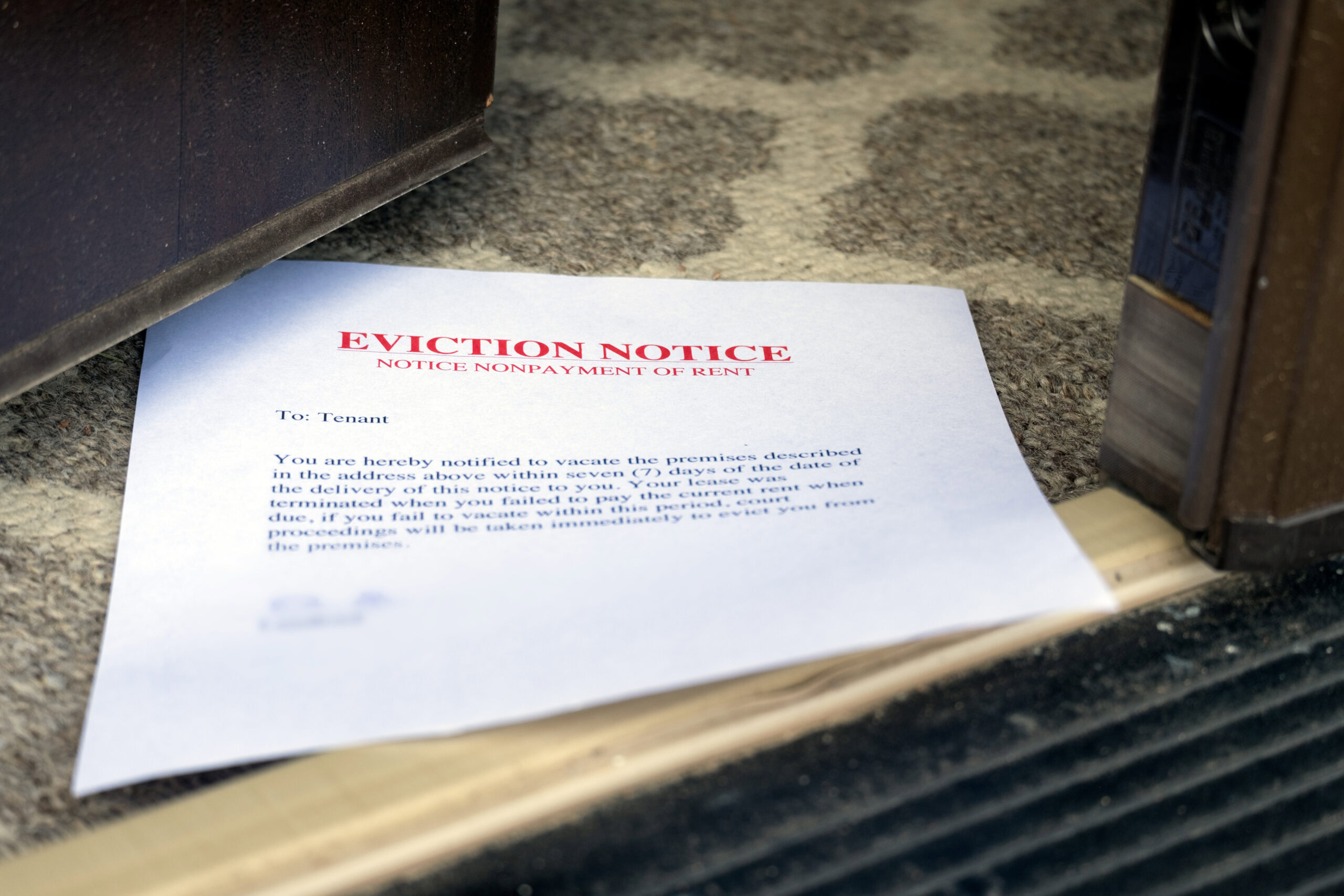In the 12 months to October 2024, the average rent in the UK rose by 8.7%. The rise has fuelled increased demand for rent guarantors who agree to cover costs if tenants default.
Genuine concerns about tenants’ ability to meet rent and bills now mean that 14% of landlords have asked potential tenants for a guarantor, according to the latest private landlord survey for England.
Many landlords don’t realise that opting for a rent guarantor can sometimes cause problems further down the line. Here, we look at the pros and cons and explore rent guarantee insurance as a practical alternative.
What is a rent guarantor?
Rent guarantors co-sign tenancy contracts and agree to cover costs if a tenant defaults. This includes the rent itself along with any other payments specified in the tenancy agreement (for example, building or maintenance service charges).
As guarantors have signed the tenancy agreement alongside the tenant, they are legally bound to any conditions set out. This also means they can be held responsible for other tenancy breaches, such as covering the cost of damage or paying outstanding bills.
Who can be a rent guarantor?
Typically, rent guarantors are relatives or close friends of the tenant who have good credit ratings. They’ll need to be at least 18 years old, but you or your landlords can increase this, and some do ask that guarantors be at least 21 years old. Most guarantors are also expected to live in the UK as this avoids complications if you or your landlords need to chase up funds.
Guarantors who are relatives or friends are generally used by students or young professionals who haven’t yet built up a strong enough credit rating to pass tenant referencing checks. They’re also used by prospective tenants whose income does not meet affordability thresholds.
Nevertheless, not every tenant can find a relative or friend willing to be their rent guarantor. It’s also tricky for tenants from overseas. In these circumstances, private guarantor schemes can be used instead. These schemes are run by specialist companies and become the tenant’s guarantor in return for a monthly fee. If the tenant fails to pay the rent, the company becomes responsible.
Some schemes also require a third-party to co-sign the tenancy agreement (for example, a relative). This means the third-party and the company are jointly responsible for repaying any rent defaults.
What checks should be done on a guarantor?
Rent guarantors need to undergo the same checks as tenants. This includes:
- a credit check, including County Court Judgement, bankruptcy and insolvency checks;
- an affordability check;
- employment verification;
- age, legal and residential status;
- bank account validation.
Why do landlords ask for rent guarantors?
For many landlords, having a rent guarantor provides a safety net. If tenants default, the guarantor is there to cover costs.
Having this safety net also means landlords may be more willing to take risks on the type of tenant they rent property to. For example, students with unpredictable income or tenants from abroad with no credit history in the UK.
The increasing demand for guarantors is also down to the rise in average rents which, in October 2024, hit £1,348 in England, £766 in Wales and £976 in Scotland. This represents an average rise of 8.8%, 7.9%, and 6.6% respectively. For many would-be renters whose finances are stress-tested in the referencing process, their earnings (on paper) might not be enough. However, having a guarantor mitigates any potential risk, as far as some landlords are concerned.
If you manage a shared tenancy, asking for a guarantor for each tenant isn’t unusual. This is because tenants are jointly responsible for covering rent but if one defaults, the others may not be willing to cover the cost. Having a guarantor for each person helps ensure that all rents can be paid.
What is rent guarantee insurance?
Rent guarantee insurance is a policy that covers the cost of rent if tenants default. These policies often include legal expenses insurance which can pay for professional advice if tenants breach their tenancy agreement, or if you or your landlords need help with an eviction.
Rent guarantee isn’t just for portfolio landlords. Policies can help anyone who leases out property and relies on the income to cover their own costs.
Which is better, a rent guarantor or rent guarantee insurance?
There are pros and cons for both so if you’re exploring options you’ll need to consider:
Benefits of a rent guarantor
- The tenant can remain in the property whilst they sort out their financial difficulties (i.e. does not necessarily lead to eviction).
- Strong sense of connection and responsibility, especially if they’ve co-signed the tenancy agreement. If they’re considered ‘responsible’ adults like a parent or grandparent they may also feel compelled to help.
- Spreads and minimises the risk where there is a shared tenancy (or if tenants don’t know each other).
- No cost as the onus is on the tenant to find a guarantor.
Drawbacks of a rent guarantor
- Risk of default by the guarantor which could lead to expensive court proceedings.
- A guarantor’s financial situation can change if they’re made redundant or need to cover any of their own unexpected costs.
Benefits of rent guarantee insurance
- Rent guarantee insurance can cover a broad demographic, increasing the pool of prospective tenants.
- Assuming a claim meets the necessary criteria, insurers will only fail to pay if you, as the managing agent (or the landlord), breach the terms of the tenancy contract or fail to meet any legal responsibilities.
- Policies can be cost-effective as they typically include legal expenses insurance.
- Provides an additional level of professionalism as you’ll be dealing with an insurer rather than a relative or friend of a tenant.
- Extended support and compensation as many policies continue to pay out a percentage of rent even after eviction and will assist with eviction proceedings and issuing notices.
Drawbacks of rent guarantee insurance
- An insurance policy means there will be premiums to pay.
- Your tenant referencing checks must be complete and thorough (this is usually a condition of the policy).
- By claiming you start an eviction process, with the aim of removing the tenant.
In practice, rent guarantee insurance passes the risk of paying out to the insurer (rather than placing the risk on an individual guarantor). As a letting agent, especially if you’re managing larger portfolios, this can simplify admin as you’ll deal with a single point of contact.
Can we combine rent guarantee insurance with a guarantor?
Yes. However, you’ll also need to make sure the guarantor passes referencing checks. If they don’t, the policy will not be valid.
One benefit of having rent guarantee insurance if there is also a guarantor, is that if a tenant defaults, the insurer will chase the guarantor for payment on behalf of your agency. However, bear in mind that this is only really beneficial to the insurer, as the policy is designed by pay you the lost rent (within limits) regardless of whether there is a guarantor or not.
Are there any other options to protect rental income?
In most cases, your agency will take a deposit which covers any damage or breaches of the tenancy agreement. But remember that if you do take a deposit, you’ll need to register it with a government-backed tenancy deposit scheme.
It’s also worth noting that relying on a deposit to cover rent defaults isn’t always practical. Tenants can end up staying in a property for months before you can evict them and claim the money.
Instead of a deposit, you can ask tenants to pay rent in advance. Most agencies (and landlords) ask for one or two months upfront but there’s no legal limit to how much you can request (unlike a holding deposit where there are clear rules).
Can lettings agents and landlords refuse to accept a guarantor?
Yes. You’re not obliged to accept tenants using a guarantor; if you do, you can choose to decline a tenants’ chosen guarantor if you have concerns. This could be because they fail the referencing check (but you don’t need to give a reason).
Is a rent guarantor legally bound to pay?
Yes. Rent guarantors are legally bound by the terms of any agreement they sign. If your tenants are using a guarantor, any contract or tenancy agreement should clearly set out their financial responsibilities and obligations if the tenant fails to meet theirs.
However, a guarantor can also refuse to pay, in which case, you can pursue them in court.
Helping you support landlords
Rent guarantee insurance can help you protect your landlords income. Policies can also encourage landlords to consider tenant types they may otherwise view as higher risk, potentially reducing empty periods between tenants.
Our rent guarantee insurance comes with a 24/7 legal advice helpline, covers up to £5,000 of rent per month and all tenant types are open to consideration.
If you’re discussing options with your landlords and they decide to opt for both a guarantor and rent guarantee insurance, just bear in mind that we don’t accept private guarantor schemes offered by companies.
If you’d like to find out more, contact a member of the team directly on 01603 649727.
Information provided in this article was correct at the time of publication. This article is intended as a guide only. Please note that legislation does change, it is always best to check the most up to date guidance on gov.uk.






























































